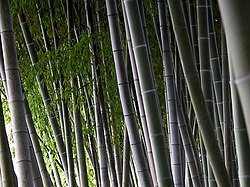Course:FRST270
FRST270 - Community Forests and Community Forestry
An introduction to the history and evolution of community forestry globally. Students will analyze forms of tenure, governance and power structures in a range of case studies, and the implications of these processes for the relative success or failure of specific examples of community forestry. Students will consider examples of co-management with different actors for a range of outcomes. Students will also explore the linkages between community forestry and national and international networks. We will review the current environmental politics of land use, examining issues such as common pool resources, customary law, and indigenous environmental knowledge in relation to traditional natural resource management and community forestry.
Students will gain understanding and appreciation of the local-to-international, and vice-versa, driving forces for resource management, and ecological change in community forestry. We will consider how evolution in national and international environmental politics shapes the ways in which indigenous and forest-dependent people(s) present themselves to the dominant cultures, and how such re-envisioning in turn contributes to political evolution.
The aim is to stimulate creative thinking about the construction and uses of community forestry to local communities and their forests, and to the range of governmental and non-governmental institutions with which they interact. This course will enable students to evaluate the constraints faced by indigenous and forest-dependent communities, and the challenges and opportunities opened for them by (re)engagement in community forestry.
Learning Objectives
- Students will be able to describe and analyze examples of community forestry arrangements from around the world, as well as the historical context of their emergence.
- Students will be able to evaluate distinct tenure/property arrangements, and levels of community participation and types of powers devolved to local forest users in community forestry.
- Students will be able to identify challenges and opportunities faced by communities in managing local forests and maintaining and growing small forest-related enterprises, and strategies to overcome the challenges.
- Students will understand how to apply their knowledge of institutions (rules and regulations) to a variety of case studies. The required analytical paper will allow the student to grapple in more depth with a self-chosen topic and to integrate the taught skills by explaining how the student would deal with the problem(s) in the topic.
Wiki Projects
You will create a wiki article to demonstrate (a) your ability to extract and summarize relevant information and (b) your capacity to rationalize and present logical arguments for further evolution or progress on some aspect of your case study. Your Wiki article should be between 2,000 and 5,000 words in length (exclusive of references, maps, photographs, links to other open source content.
Please visit the Wiki Projects Page for instructions and a list of topics.
